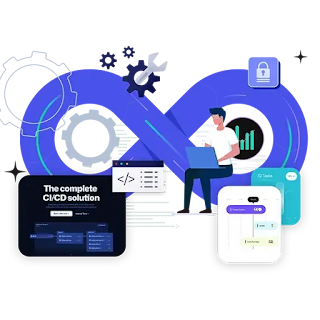How DevOps Consulting Can Resolve Cloud Cost Management Issues
In the ever-evolving digital landscape, cloud computing has emerged as the cornerstone of modern business operations. Organizations are leveraging the cloud to enhance scalability, improve operational efficiency, and accelerate time-to-market. However, as cloud adoption grows, so does the complexity of managing cloud costs. Many businesses face unforeseen expenses, inefficient resource utilization, and a lack of visibility into cloud spending. This is where DevOps consulting plays a transformative role.
Understanding the Challenges in Cloud Cost Management
Before delving into how DevOps consulting can help, it's essential to identify the key issues organizations face in managing cloud costs:
Over-Provisioning of Resources: Organizations often over-provision resources to avoid downtime, leading to unnecessary expenses.
Lack of Visibility: Without proper tools and processes, tracking cloud usage and identifying cost-saving opportunities becomes challenging.
Inefficient Workflows: Manual processes and siloed teams can lead to delays in addressing cost-related inefficiencies.
Dynamic Pricing Models: The flexible pricing models of cloud providers, though advantageous, can result in unpredictable costs if not managed properly.
Underutilized Resources: Idle or underused resources significantly inflate cloud bills.
How DevOps Consulting Addresses Cloud Cost Challenges
DevOps consulting integrates development and operations teams to enhance collaboration, automate processes, and implement cost-effective solutions. Here’s how DevOps experts can help:
1. Implementing Infrastructure as Code (IaC)
DevOps practices rely on Infrastructure as Code to define and manage cloud resources through scripts. This approach:
Ensures consistent provisioning of resources.
Automates resource scaling to align with demand.
Reduces human errors that lead to over-provisioning or resource wastage.
2. Optimizing Cloud Usage Through Automation
Automation is at the core of DevOps. By automating routine tasks like turning off non-essential resources during non-peak hours, organizations can significantly reduce costs. Automated monitoring tools can also flag unused or underutilized resources for decommissioning.
3. Enhancing Visibility with Monitoring and Analytics
DevOps consulting introduces robust monitoring tools and dashboards that provide real-time insights into cloud usage and spending. This visibility helps:
Identify cost-heavy resources.
Track trends to predict future expenditures.
Optimize resource allocation based on usage patterns.
4. Continuous Integration and Continuous Delivery (CI/CD)
CI/CD pipelines reduce manual intervention in deployments and enable faster iteration cycles. By integrating cost-monitoring tools into these pipelines, organizations can:
Detect cost inefficiencies during development.
Implement cost-saving measures in real-time.
5. Leveraging FinOps Practices
Many DevOps consultants incorporate FinOps (Financial Operations) principles to align cloud spending with business goals. This involves:
Educating teams about cost implications of cloud decisions.
Creating cross-functional accountability for cloud expenditure.
Regularly reviewing and optimizing cloud contracts and pricing models.
6. Dynamic Resource Allocation
DevOps consulting facilitates dynamic resource allocation by leveraging containerization and orchestration tools like Kubernetes. This ensures resources are scaled up or down automatically based on workload demands, preventing over-provisioning and reducing costs.
The Business Impact of DevOps-Driven Cloud Cost Management
Adopting DevOps consulting for cloud cost management delivers tangible benefits, including:
Lower Operational Costs: Automation and optimization reduce unnecessary expenditures.
Improved ROI: Efficient resource utilization maximizes the return on cloud investments.
Faster Time-to-Market: Streamlined workflows and CI/CD pipelines enable quicker deployments.
Enhanced Scalability: Dynamic resource management ensures businesses can scale without breaking their budgets.
Strategic Decision-Making: Real-time insights empower leaders to make informed financial decisions.
Final Thoughts
Cloud cost management doesn’t have to be a daunting challenge. With the right DevOps consulting services, businesses can gain control over their cloud expenses while improving operational efficiency. By adopting DevOps best practices, organizations can create a sustainable, cost-effective cloud strategy that supports growth and innovation.
If your organization is struggling with cloud cost management, consider partnering with a DevOps consulting firm to unlock the full potential of your cloud infrastructure. The benefits are not just financial but also operational, paving the way for a more agile and competitive business.


Comments
Post a Comment